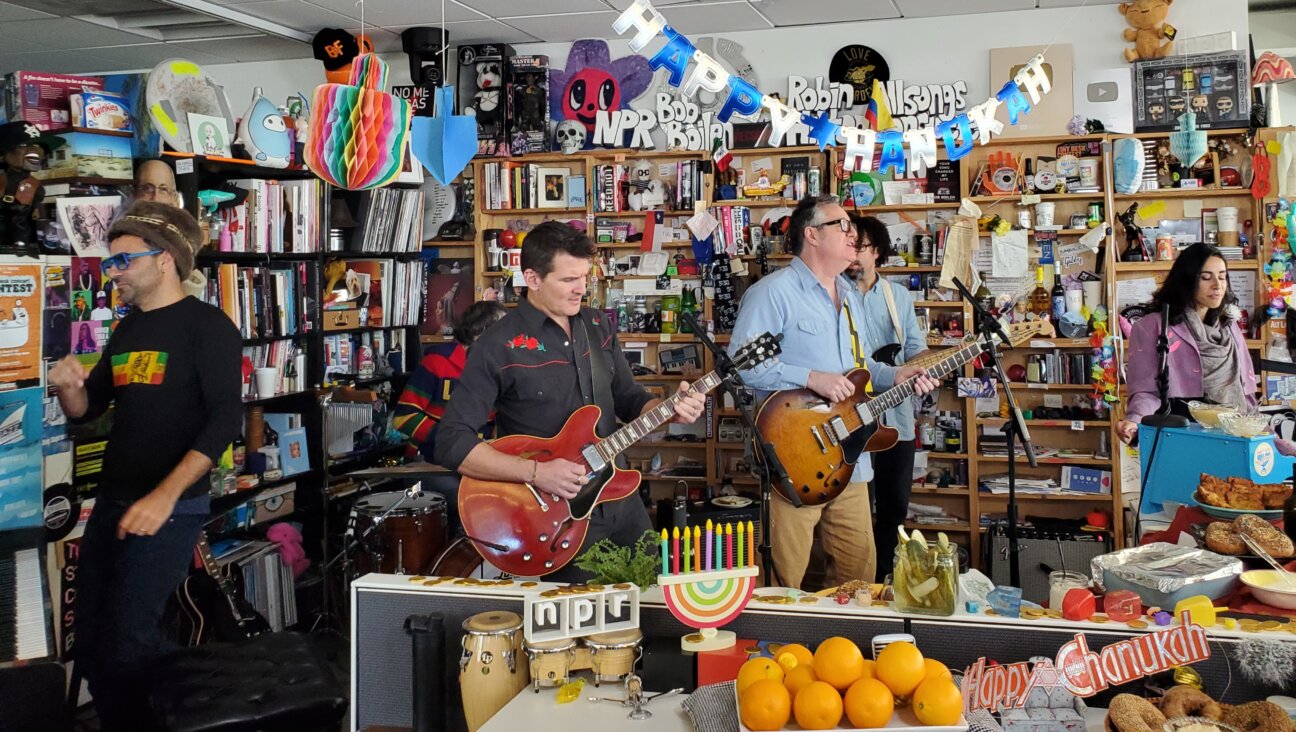Meet Seymour Steinbigle Who Discovered Madonna and The Ramones

Seymour Stein Image by Courtesy of Seymour Stein
Calling Seymour Stein one of the most influential figures in American pop music barely does justice to a 60-year career whose highlights include discovering Madonna, the Ramones, the Smiths, and Talking Heads. Now, in his autobiography “Siren Song’” Stein tells all — and we mean all — about his unbelievable life, with seemingly every instance of sex, drugs, or rock ‘n’ roll recalled in full color. For the Jewish kid from Brooklyn born Seymour Steinbigle, it’s been quite a ride. The Forward caught up with Stein, who at 76, is still a force in the industry.
If Seymour Steinbigle was starting out in the music business of 2018, what kind of career do you think he would have?
If I were starting out in the music business in 2018, I would probably be thirteen, or at the most fifteen, and hopefully totally plugged in and attuned to all the great music, and in particular, music of the past eight or ten years, and a bit of the mu-sic from the 50’s going forward. Hopefully that’s not too much to ask for.
As far as your career and the industry, how true is the “Jewish mafia” cliché? It seems like a lot of the characters you encountered were larger-than-life Jews.
I don’t like the term “Jewish mafia,” especially since the music business, like much of the entertainment business, the garment business, is composed of a relatively large number of Jews. I think you will find there were a lot of very good and very talented people involved in all aspects of the music business, and that is still true today.
How do you think your parents would have responded if they’d been able to read your book? It sounds like there was a lot they didn’t know about you.
My parents loved me very much, and if they didn’t understand what exactly I wanted to do, they certainly never stood in my way. They lived long enough, thank G-d, to see me have initial success. My father died in 1973, aged 83, and my mother in 1986, aged 80. Thankfully, she saw the success during the early days of the Madonna phenomenon.
At 76, you’re still kicking it and traveling around the world for work. Why not take a break? What keeps you going?
What keeps me going? I pretty much love what I’m doing.
In the book, you cite a few Jewish melodies, including Hatikvah, as truly great songs. Any others? Is there a Jewish top five we can share with our audience?
I particularly like the Passover Kiddish. Also, “Chad Gadya,” “Eichad Elokeinu,” “Maoz Tzur,” a particular favorite, “Va Yom Ha Hoo,” and one of my very favorites is the grace after meals, which I try to sing at every festival dinner I’m invited to. And one of my very favorite Jewish songs, “Tzena, Tzena, Tzena”. by the Weavers from back around 1950.
Sometimes very challenging times can produce great art. Have you been see-ing any kind of musical groundswell since Trump got elected? And is music ef-fective activism?
With regard to Trump, not yet.
A message from our Publisher & CEO Rachel Fishman Feddersen

I hope you appreciated this article. Before you go, I’d like to ask you to please support the Forward’s award-winning, nonprofit journalism during this critical time.
We’ve set a goal to raise $260,000 by December 31. That’s an ambitious goal, but one that will give us the resources we need to invest in the high quality news, opinion, analysis and cultural coverage that isn’t available anywhere else.
If you feel inspired to make an impact, now is the time to give something back. Join us as a member at your most generous level.
— Rachel Fishman Feddersen, Publisher and CEO





















